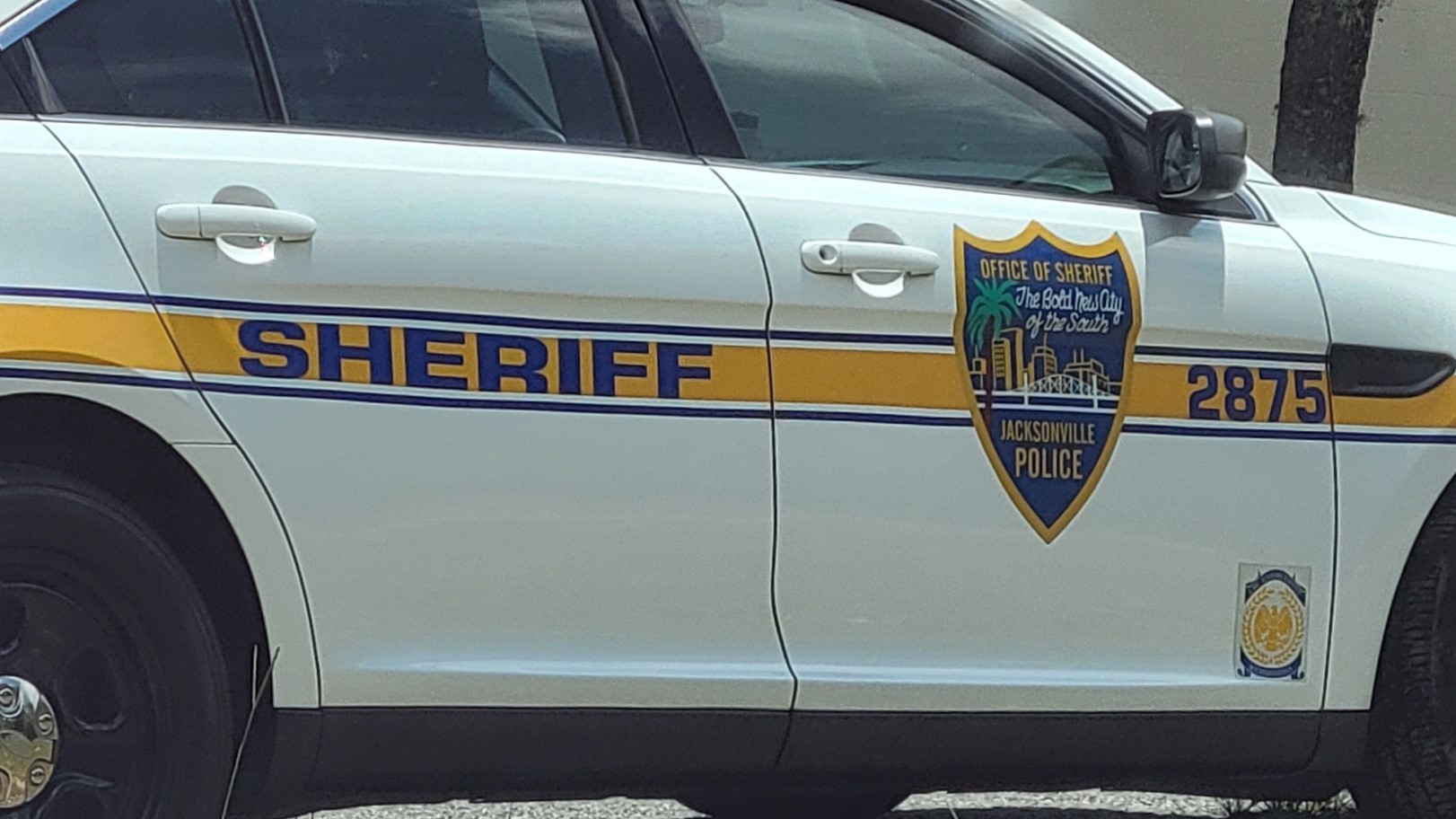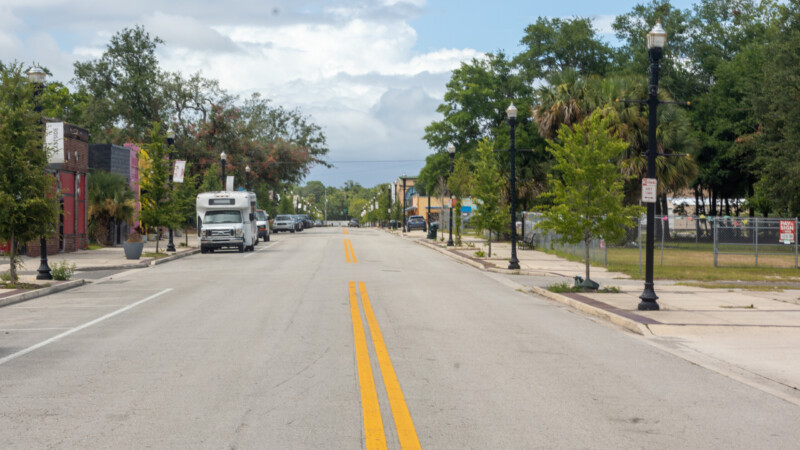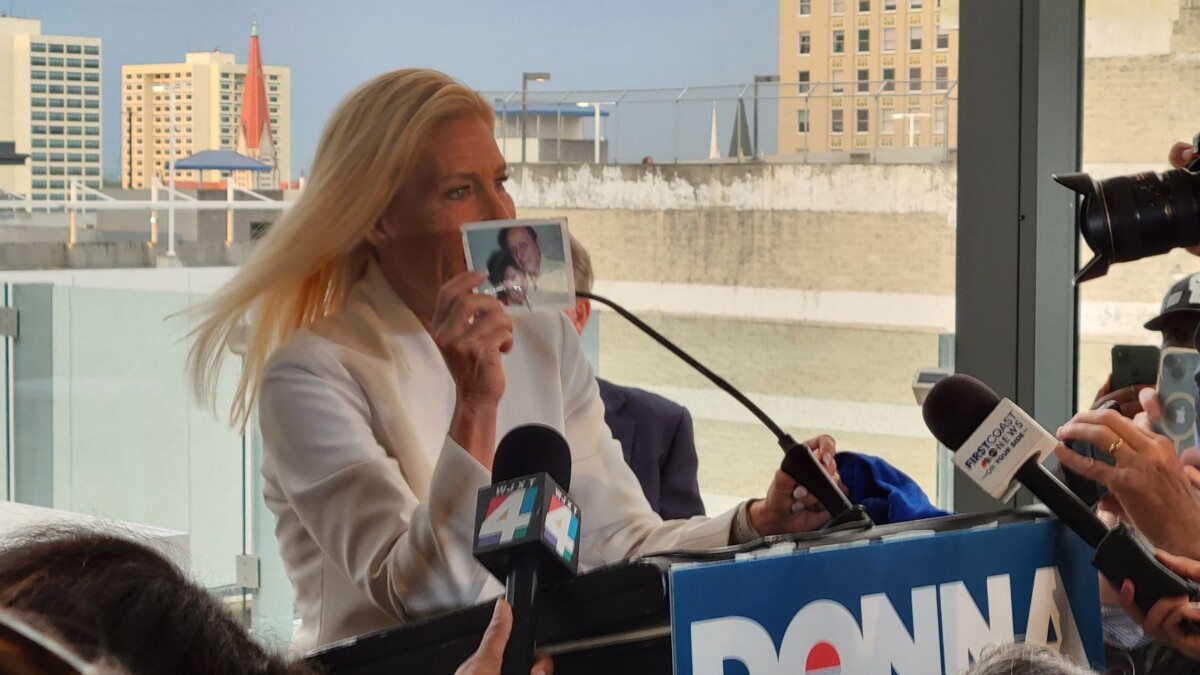
Do you believe the police keep you safe?
In my 9 to 5 employment, I work with several organizations that are part of the modern abolitionist movement. This movement is characterized and has perhaps been demonized by the pithy and hashtaggable yet narratively ineffective slogans “Defund the Police” and “Abolish ICE.”
While these bite-sized protest chants are appetizers for newly mobilized activists moved by mass media coverage of lynchings and the like, the movement work behind them is deep, long, and grounded in generational study. At the core of this abolitionist movement is the fundamental idea that not only do police not keep people safe, they are also not an antidote to violence or crime.
So, I’m sure you can imagine that when I saw the Jacksonville sheriff’s request for 80 new officers—40 funded by the city and the other 40 funded by a federal grant—I rolled my eyes. That the sheriff initially wanted 200 more officers but revised his request to 80 did not make me feel, as a citizen, that I was being done any favors. But what needled me even more was his request for another budget increase to $600 million dollars. That’s $35 million more than last year.
I’ve lived in Jacksonville since March 2011. That year the sheriff’s office budget was $350 million. The Florida Times-Union reported there were 86 homicides that year, the lowest number on record since the paper began keeping count in the 1980s. More than 10 years later, both the JSO budget and the number of homicides in the city is nearly double what it was when I first arrived.
The math ain’t mathing.
So, do you believe the police keep you safe?
You would think, or at least I would, that an increase in policing —officers, equipment, programs (Hey, ShotSpotter and NIBIN) — would have a direct correlation to a reduction in crime. It doesn’t. It hasn’t. And that is because policing is not a deterrent to crime, just as the United States’ mass arsenal of nuclear weapons and role as the world’s cop is not a deterrent to North Korea’s ballistic missile launches.
The root cause of crime, especially in areas where homicides are high, socio-economic status is low, and despair aloft, is poverty. Black men 18-40 make up the majority of the homicide victims in Jacksonville, also known as the “murder capital of Florida.” The area where the majority of these homicides happen is the 32209 ZIP code, which encompasses the neighborhoods of New Town, Grand Park, Moncrief Park, and Edgewood Manor just to name a few. You know what else characterizes the 32209 ZIP code? The CDC identified it as a Health Zone 1.
In this area, where 81% of the population are minorities and 31% of the city’s Black population lives, has the city’s highest poverty rate, 29.6%, and negative job growth. The average income for this area is a little over $40,000. The average income for the entire city of Jacksonville is nearly $60,000.
And if we compare to our neighbors to the south, the No. 3 richest county in the state, St. Johns, has an average income of nearly $90,000. Furthermore, the 32209 area is known for being environmentally dangerous with 33 Superfund sites, impaired waterways, and polluted air — i.e. that smell that hits you on I-95 North around the Norwood exit. The area is also a food desert.
These are markers of poverty of which there is a direct correlation to crime. As noted by the Brookings Institution: “Neighborhoods with higher poverty and unemployment rates (often due to systemic disinvestment and public and private sector abandonment) have higher rates of violent crime, and that income inequality within a neighborhood is associated with higher rates of violence.”
We cannot, will not, and have never been able to police ourselves out of crime, just as we can’t police people out of poverty. The police budget has been at or above half-a-billion dollars for the last few years, and the crime numbers remain high, pesky and intractable like a recalcitrant toddler refusing to put on pants.
Instead of bulking up the budget, adding more officers to the roster, and thereby increasing encounters with police that heighten the probability for crime-and-punishment narratives that don’t help the community or the systemic problems they face — which were created by governments (local, state and federal) on purpose — why don’t we do something different?
Instead of trying to contain and control people by the ever-threatening presence of the carceral system, why don’t we take at least half of the requested $600 million and invest in tutoring, GED, and continuing-education programs, and social services to help people manage their mental health because poverty breeds stress and stress causes crime? As identified by the Justice Department’s Office of Justice Programs, “The level of social stress in a given locale, the higher the levels of maladaptive behaviors, violence and crime.”
Instead of going halfsies with the Jags on a Stadium of the Future, we could provide those same incentives to a grocer to operate another store in the area because the two Harveys are not enough when I can count three Publixes, a Rowe’s, a Winn Dixie and a Walmart in less than a 10-mile radius of my own home.
There is more than enough money available to do the work to invest in people, in the place they call home, and offer them the resources they are owed. The question is whether there is a political will to do so. Giving more money to JSO, an organization lacking in both results and transparency, is an easy scapegoat of a solution to say, “I invested in police and they failed to keep the community safe.”
Police don’t keep the community safe. They never have. The institution is the living legacy of slavery, the same as the endemic poverty in 32209 — and other areas — that cuts across the city’s racial and class divide.
In abolition circles, the opposition often asks, “What, then, replaces police?” The answers are a nebulous mix of hokey platitudes such as “community care and protection” and visioning exercises steeped in replacing the current criminal legal system with a model of “restorative justice.” But even these attempts at re-creation and reimagining are weak because they’re still holding rigid to frameworks rooted in carceral logic.
To the question “If the police don’t keep us safe, then who does?” the answer is simple.
We do!
When people’s base needs are met — shelter, clothing, food and the opportunity for abundance replacing the scarcity mentality bred by capitalism and exploited by white supremacy — I believe we will find that those pesky homicide numbers will come down.
Just like the toddler who eventually acquiesces, responding to love instead of rage, and puts on pants, the solution to our “crime problem” is compassion, not punishment.
The police don’t keep us safe.
We do.

Nikesha Elise Williams is an Emmy-winning TV producer, award-winning novelist (Beyond Bourbon Street and Four Women) and the host/producer of the Black & Published podcast. Her bylines include The Washington Post, ESSENCE, and Vox. She lives in Jacksonville with her family.






